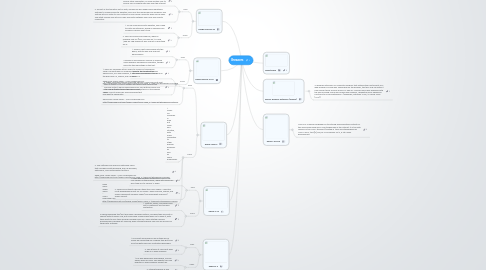
1. Apple Safari 5
1.1. Pros
1.1.1. 1. Safari for Windows lets PC users try Safari for themselves. Safari is a great way for Windows users to take a bite of the Apple since, as a Web browser, it can only be so different from the Big Three; IE, Firefox, and Chrome. Read more: Apple Safari - CNET Download.com http://download.cnet.com/Apple-Safari/3000-2356_4-10697481.html#ixzz2CLcn2Es6
1.1.2. 2. Its new features include the Reading List, which collects Web links and bookmarks that you want to check later. Read more: Apple Safari - CNET Download.com http://download.cnet.com/Apple-Safari/3000-2356_4-10697481.html#ixzz2CLctNSI4
1.2. Cons
1.2.1. 1. Safari for Windows is plain but clean and intuitive, with many similarities to other popular browsers as well as some differences.
1.2.2. 2. The Settings icon opens an extensive menu that includes private browsing, pop-up blocking, Extensions, and customization buttons. Read more: Apple Safari - CNET Download.com http://download.cnet.com/Apple-Safari/3000-2356_4-10697481.html#ixzz2CLdCiRxr
1.2.3. Read more: Apple Safari - CNET Download.com http://download.cnet.com/Apple-Safari/3000-2356_4-10697481.html#ixzz2CLd3LlyD
2. Opera 12.10
2.1. Pros
2.1.1. 1. Safari has hardware acceleration only in the Mac version of the browser, while with Opera we won't see any till version 12 ships.
2.1.2. 2. Safari and Internet Explorer utilize the H.264 codec—long the most widespread format for HD video—while Chrome, Firefox, and Opera implement Google's newer (and somewhat unproven) WebM format.
2.2. Cons
2.2.1. 1. Chrome, Opera, and Safari have yet to implement any tracking protection.
2.2.2. 2.Opera pioneered this (as it did many a browser feature, including tabs and built-in search) with its Opera Link, but Firefox and Chrome have gone on to equal it, with their ability to sync tabs and even browser add-ons. Safari started offering bookmark and "reading list" syncing, while Internet Explorer can only be synced via third party software.
3. Explorer 9
3.1. Pros
3.1.1. 1. Microsoft announced in DATE they will no longer be supporting IE6. Perhaps they got tired of all the hate mail from frustrated developers.
3.1.2. 2. The IE team at Microsoft fixes bugs on a fixed schedule.
3.2. Cons
3.2.1. 1. For web developers everywhere, IE6 has always been an issue. The website can look beautiful in every browser except IE6.
3.2.2. 2. Internet Explorer is also known to get a lot of viruses.
4. Mozilla Firefox 16.02
4.1. Pros
4.1.1. 1. Firefox 4 got Mozilla back into the game, with its lean look and fast performance.
4.1.2. 2.Firefox is also ahead of Chrome in offering some graphics hardware acceleration, though few sites take advantage of that yet.
4.2. Cons
4.2.1. 1.Firefox for the desktop's big interface changes all came along in version 4.
4.2.2. 2. When compared side-by-side with Chrome, Firefox falls just a bit short in terms of HTML5 support and whiz-bang features like Chrome Instant, which loads pages from your history before you even finish typing their addresses or search terms in the address bar.
5. Google Chrome 23
5.1. Pros
5.1.1. 1. Chrome Remote Desktop lets you remotely access other computers, or allow another user to access your computer securely over the Internet.
5.1.2. 2. As part of the transition out of beta, Google has also added some additional features to Chrome Remote Desktop, like a real-time audio feed on Windows. This feature lets you listen to MP3's stored on your home computer while you're away. The latest version also lets you copy and paste between your local and remote computers.
5.2. Cons
5.2.1. 1. To use Chrome Remote Desktop, you'll need to install an extension, which is available from Google's Chrome Web Store.
5.2.2. 2. The ARM-based Chromebook, which is available now for $249, includes an 11.6-inch, 1,366-by-768 display as well as built-in dual band Wi-Fi.
